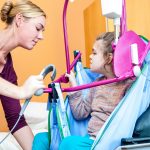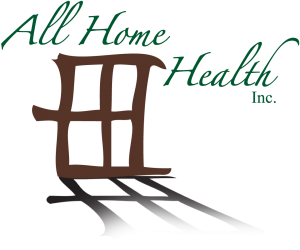 The many of activities of daily living are often represented with the acronym of ADL. This terminology refers to self-care activities that most of us handle every single day. They include things like grooming, eating, getting dressed, and bathing, among many others. In the field of healthcare, how capable a person is of performing their ADLs is often an insightful measurement of how independent and functional a person is.
The many of activities of daily living are often represented with the acronym of ADL. This terminology refers to self-care activities that most of us handle every single day. They include things like grooming, eating, getting dressed, and bathing, among many others. In the field of healthcare, how capable a person is of performing their ADLs is often an insightful measurement of how independent and functional a person is.
There is some debate about the different categories of ADLs, but so far, what exactly is an ADL or not in certain environments can be different from one person to the next. We have created our services in a way that improves and supports both the independence and dignity of anyone needing assistance with their particular set of daily living activities.
Daily Living Activities
Fundamental ADLs center around self-care tasks, which include but are not limited to the following:
-Ambulation, like walking or wheelchair use
-Bathing and/or showering
-Getting dressed of undressed
-Feeding yourself
-Functional transfers like getting out of a chair or bed
-Grooming, including hair, skin, and oral care
-Assistance with range motion
-Voluntary control over fecal and urinary discharge
What Are IADLs?
IADLs are the instrumental activities of daily living. They’re generally defined as actions which are crucial to independent living but aren’t actually necessary to happen every single day. These instrumental activities can be a lot more subtle in terms of loss of functionality as compared to losing ADLs. However, losing the functional ability to handle IADLs often happens before ADLs themselves are lost. Measuring IADLs is useful in ascertaining the specific amount of help that disabled or elderly individuals might require. Specific IADLs include the following:
1) Fundamental Communication Skills: Using the Internet, email applications, text messaging, and telephones
2) Transportation: Driving oneself around, making arrangements for rides, or using public or mass transit
3) Meal Prep: Planning meals, doing cooking, cleaning up, storing food, and using kitchen utensils and appliances safely
4) Shopping: The capacity to make proper buying choice when getting food or clothes
5) Chores: Washing clothes and dishes, vacuuming and dusting, and keeping a residence hygienic
6) Medication Management: Taking proper dosages at correct times, handling re-fills, managing side effects, and preventing conflicts
7) Organizing Personal Finances: Keeping withing a budget, paying bills, not falling prey to scams, and saving money
Personal care is a term that usually specifically refers to the simple matters of self-care like grooming, dressing, bathing, showering, and personal hygiene. It might also include mobility assistance, caring for incontinence issues, and simple toileting. People that start needed help with any of these particular activities might be able to take advantage of our experienced and qualified team members. Our professionals have the training to offer full assistance with any and all personal care needs, but they can also just offer standby support with potential assistance available through supervision. We work closely with all of our clients in order to reduce the potential disruption to their typical routines.
We have passionate care managers who implement thorough analysis in order to ascertain the specific personal care tasks that your loved one could use extra help with. We also look for ways of keeping up the most independence possible in your loved one’s home. We take pride in working closely with every family in order to configure the best level of possible care across many different circumstances, situations, and arrangements. Our personal care services can be arranged for several hours each day, every day of the week, or even through a live-in arrangement.
